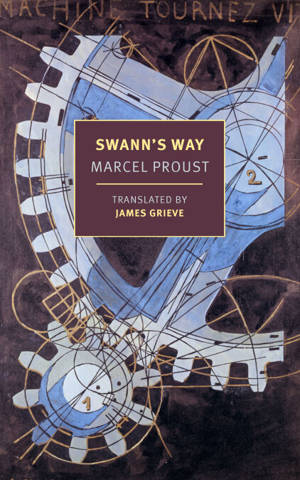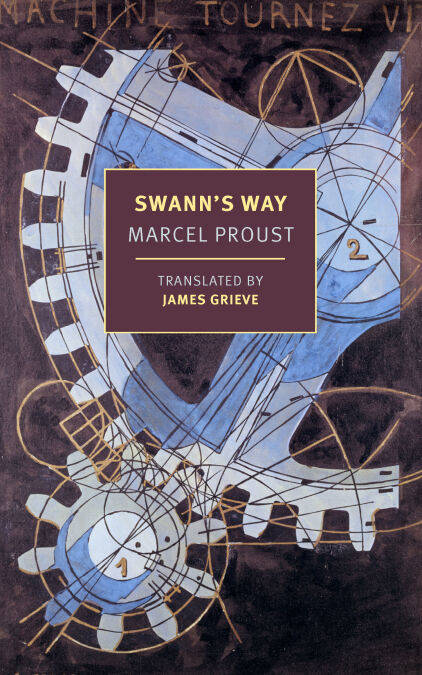
- Afhalen na 1 uur in een winkel met voorraad
- Gratis thuislevering in België vanaf € 30
- Ruim aanbod met 7 miljoen producten
- Afhalen na 1 uur in een winkel met voorraad
- Gratis thuislevering in België vanaf € 30
- Ruim aanbod met 7 miljoen producten
Zoeken
Omschrijving
Now available for the first time in the United States, a celebrated translation of the first volume of Proust’s In Search of Lost Time.
Swann’s Way, the first of the seven volumes that constitute Marcel Proust’s lifework, In Search of Lost Time, introduces the larger themes of the whole work while standing on its own as a brilliant evocation of childhood, hopeless love, and the French Belle Époque.
We first encounter Proust’s narrator in middle age, consumed with regret for his misspent life. Suddenly, he is back in the past, seized by memories of childhood: his clinging attachment to his mother, his dread of his father, summers in the country and the two walks his family was in the habit of taking—one by an aristocratic estate, the other by the house of a certain Charles Swann, to whom a mystery was attached. A child’s world, and the world of adults the child struggles to imagine, spread out before us, while Proust’s pages teem with incident and puzzlement, pathos and humor.
The novel then takes a further step backwards to tell the story of Swann’s infatuation with the courtesan Odette. Swann, man-about-town and familiar of royalty, is reduced to walking after midnight, forlorn as a child awaiting a goodnight kiss.
James Grieve began his career translating Proust in the early 1970s, driven by his dismay at how many readers recoiled from what they imagined to be the difficulty of Proust’s work, and his translation of Swann’s Way brings out the book’s fluency and speed as no other version does. It offers an unequaled introduction to an incomparably absorbing work of art.
Swann’s Way, the first of the seven volumes that constitute Marcel Proust’s lifework, In Search of Lost Time, introduces the larger themes of the whole work while standing on its own as a brilliant evocation of childhood, hopeless love, and the French Belle Époque.
We first encounter Proust’s narrator in middle age, consumed with regret for his misspent life. Suddenly, he is back in the past, seized by memories of childhood: his clinging attachment to his mother, his dread of his father, summers in the country and the two walks his family was in the habit of taking—one by an aristocratic estate, the other by the house of a certain Charles Swann, to whom a mystery was attached. A child’s world, and the world of adults the child struggles to imagine, spread out before us, while Proust’s pages teem with incident and puzzlement, pathos and humor.
The novel then takes a further step backwards to tell the story of Swann’s infatuation with the courtesan Odette. Swann, man-about-town and familiar of royalty, is reduced to walking after midnight, forlorn as a child awaiting a goodnight kiss.
James Grieve began his career translating Proust in the early 1970s, driven by his dismay at how many readers recoiled from what they imagined to be the difficulty of Proust’s work, and his translation of Swann’s Way brings out the book’s fluency and speed as no other version does. It offers an unequaled introduction to an incomparably absorbing work of art.
Specificaties
Betrokkenen
- Auteur(s):
- Vertaler(s):
- Uitgeverij:
Inhoud
- Aantal bladzijden:
- 464
- Taal:
- Engels
Eigenschappen
- Productcode (EAN):
- 9781681376301
- Verschijningsdatum:
- 22/05/2023
- Uitvoering:
- E-book
- Beveiligd met:
- Adobe DRM
- Formaat:
- ePub

Alleen bij Standaard Boekhandel
+ 17 punten op je klantenkaart van Standaard Boekhandel
Beoordelingen
We publiceren alleen reviews die voldoen aan de voorwaarden voor reviews. Bekijk onze voorwaarden voor reviews.











